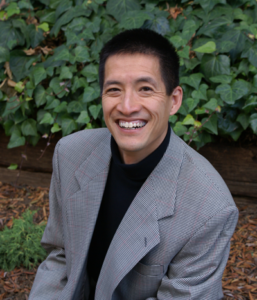
The Importance of Being an Absent-Minded Professor
If you can remember a time when you kept track of your appointments by writing them on a huge calendar pad that took up half of your desktop (and you know that “desktop” once referred to the upper surface of your desk), you might sympathize with the question, “Where on Earth did I put my _________________?” (Fill in the blank).
The first piece of good news for us is that we academics get a lot more latitude for such fumbling than say, air traffic controllers, for whom absent-mindedness is more generally frowned upon. The second piece of good news is: “There’s an app for that.” (I’d demonstrate, but I think I may have left my phone in the car.)
You may or may not identify with being forgetful about everyday things. If you have stood in front of a classroom for numerous occasions, however, you will have had sessions or classes that you wish you could forget. Teaching is, after all, a performance. Like any performer, a teacher is going to have good performances and bad ones, but it is the bad ones that are most likely to stick with us. That is because teaching is deeply personal: you design the session, you pour yourself into the delivery, you want your students to learn from you. In a sense, this difficulty to let go of bad classes is a good sign; it shows that we do care as a teacher. At the same time, we need to recognize that teaching is also generally a live and interactive performance. How such a performance goes is not solely dependent on us. The students in the class, their preparation or lack thereof, what time of day a class meets; all these factors (and a whole lot more) will influence how a class session goes. I’m not saying that we shouldn’t evaluate what feels wrong, only that many other elements, besides what we did or did not do, need to go into the mix to help us keep things in perspective when we make our assessments and adjustments. For instance, I’ve taught the same exact class to two different groups in the same day, and had entirely different experiences.
 After we determine what, if any, changes need to be made, we might need to exercise a little deliberate “absent-mindedness” to shake off the discouragement of a “dud” that can sap our energy and threaten our confidence going forward. This is in my experience easier said than done. Learning to remember is hard, but our years of education have “programmed” us to try to remember everything we care about. After all, we have learned to remember not only concepts and ideas, but also who says what in which book and on which page. Learning to forget deliberately is hence perhaps even harder for us. I have had experiences of not being able to stop thinking of a bad class session for an entire day; I could not concentrate to read, to write, or to do anything, I just kept replaying what went wrong and wondering why I was not smart enough or good enough to make things better. Perhaps that has to do with the fact that minoritized faculty members like myself often feel the need to be twice as good in everything to be treated equally, though I am inclined to think that minoritized faculty members are not the only ones who struggle with letting go of the lingering effects and affects of a bad class session.
After we determine what, if any, changes need to be made, we might need to exercise a little deliberate “absent-mindedness” to shake off the discouragement of a “dud” that can sap our energy and threaten our confidence going forward. This is in my experience easier said than done. Learning to remember is hard, but our years of education have “programmed” us to try to remember everything we care about. After all, we have learned to remember not only concepts and ideas, but also who says what in which book and on which page. Learning to forget deliberately is hence perhaps even harder for us. I have had experiences of not being able to stop thinking of a bad class session for an entire day; I could not concentrate to read, to write, or to do anything, I just kept replaying what went wrong and wondering why I was not smart enough or good enough to make things better. Perhaps that has to do with the fact that minoritized faculty members like myself often feel the need to be twice as good in everything to be treated equally, though I am inclined to think that minoritized faculty members are not the only ones who struggle with letting go of the lingering effects and affects of a bad class session.
As a big sports fan, I have heard it said many times that great athletes are those who can discipline themselves in, among other things, having a short-term memory. No matter how smoothly or poorly the last play or the last game went, the great ones can shake it off and move onto the next play and the next game. There are a lot of athletes who not only have talents but also train hard; what distinguishes the great ones is actually their ability to forget.
I need to learn and discipline myself to be an absent-minded professor along this line. Could somebody design an app for that?
That reminds me, I’ve got to go find my phone.
Good article and encouragement.